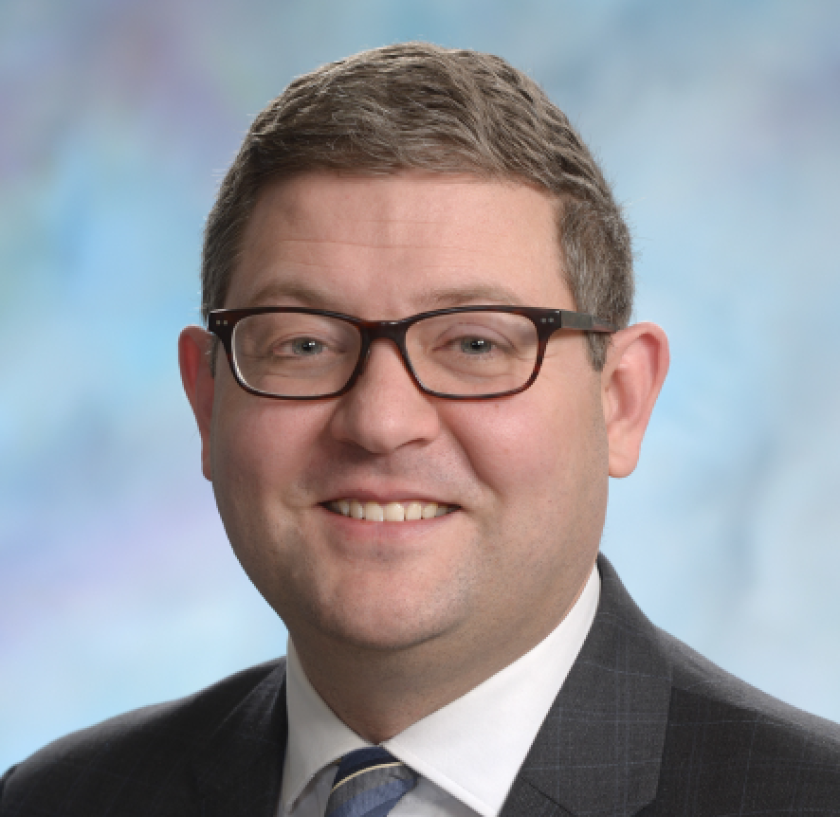PIERRE — Several South Dakota legislators said Thursday they will introduce legislation that would provide property tax relief to homeowners by raising the state sales tax rate.
Rep. Tony Venhuizen, R-Sioux Falls, announced the effort.
“Property tax is the number one concern for my constituents and across South Dakota,” Venhuizen said. “This is the year for major property tax relief.”
Property tax reform has been a concern in the Legislature for years and was the subject of a legislative study last summer. Many legislators ran on the promise of property tax relief in the June primary and November general election. Since 2017, property tax payments have gone up 47% for owner-occupied homes and 36% for commercial property, while rising 3% for agricultural property.

Venhuizen said Sen. Randy Deibert, of Spearfish, will be the prime Senate sponsor of the property tax relief legislation. Sen. Amber Hulse and Rep. Trish Ladner, both of Hot Springs, and Rep. Tim Goodwin, of Rapid City, will be cosponsors. All are Republicans.
Ladner said she also plans to introduce legislation to complement Venhuizen’s. The bill would cap increases in the valuation of owner-occupied homes and commercial properties at 3% annually, among other changes. Valuation escalation is a primary driver of property tax increases.
“3% is doable. You can plan for it,” Ladner said. “There’s a momentum we didn’t have last year. I believe now is the time.”
The proposals will be debated when the legislative session begins Jan. 14 at the Capitol in Pierre.
Venhuizen said his legislation would reduce the property tax levy on owner-occupied homes for general education and special education from $4.167 to zero, thereby saving homeowners $416.70 for every $100,000 of a home’s assessed value. He expects the proposal to save homeowners $280 million in total, with an average property tax reduction of 35% per homeowner.
Because it’s “just not possible” to deliver meaningful property tax relief without replacement revenue, Venhuizen said, the legislation would be funded by raising the state sales tax rate from 4.2% to 5%. The legislation would thus shift some of the burden for funding public education from homeowners to consumers.
“Owner-occupied property taxes are paid entirely by South Dakota residents. Sales tax is paid, in part, by visitors,” Venhuizen said. “This is a tax cut for South Dakota residents.”
Venhuizen said he expects the sales tax increase to raise an equivalent amount, $280 million.
Neither Venhuizen nor Deibert could say what percentage of current sales tax is paid by tourists and out-of-state visitors. They hope to present some idea to the Legislature when the session begins.
Nathan Sanderson, executive director of South Dakota Retailers Association, said his primary concern — without seeing a draft bill yet — is ensuring property tax burdens aren’t shifted onto commercial properties. He added that while property taxes for homeowners have been a concern in the last decade, he believes it will sort itself out eventually.
“The problem you’ve got is the thing that is being taxed is increasing at a tremendously high rate. That’s not going to continue forever,” Sanderson said. “As long as there are property taxes, there will be folks who think they’re too high.”
The use of sales taxes to provide property tax relief would mean non-homeowning South Dakotans would not see a tax cut. They would only see a sales tax increase. Despite that, Deibert said the increase would not be very noticeable for South Dakotans, especially low-income residents.
“We’re reducing property taxes by $400 per $100,000 valuation. It takes a lot of purchases — those normal or essential purchases — to accumulate $400 in sales tax,” Deibert said. “If someone is out there who can afford a car or TV or refrigerator, they’ll contribute to this fund at a higher rate than someone who doesn’t have the income to purchase those things.”
Rob Monson, executive director of School Administrators of South Dakota, said relying on the “ebb and flow” of sales taxes for education funding concerns him, especially given the lower revenues reported this fiscal year .
“You have no control over what people are buying or not buying,” he said. “Property is always there. It’s a real thing. The valuation is a real thing that can change and be manipulated up or down. You don’t have control over sales tax.”
Venhuizen said when sales tax revenue dips, it’s made up in future years. Deibert said schools’ needs will be met.
“It’s a legitimate concern, but another concern is managing your budget and reducing spending during lean years,” Deibert said. “We have to educate our kids well, but not tax our people out of their homes to do that.”
Republican Gov. Kristi Noem did not include any property tax relief proposals Tuesday in her annual budget address . She did call for tax relief.

“Last year during this speech, I asked you to make a permanent tax cut for the people of South Dakota – and I am reiterating that request today,” Noem said. “Our people deserve better than a temporary sales tax holiday.”
The “holiday” reference was to legislation she signed in 2023 that lowered the state sales tax rate from 4.5% to 4.2%, with a sunset in 2027. Legislators and then-Gov. Dennis Daugaard raised the state sales tax rate from 4% to 4.5% in 2016 as part of a plan to boost teacher pay, but the state currently ranks 49th in average teacher salaries.
Venhuizen expects more property tax relief proposals this session.
“If we want to really have a serious discussion about property tax relief as a Legislature, we need to start with a baseline of what that looks like, what the cost is and how to pay for it,” Venhuizen said. “Every discussion starts with a proposal, and that’s what we’re offering here.”
— This story was originally published on southdakotasearchlight.com.








